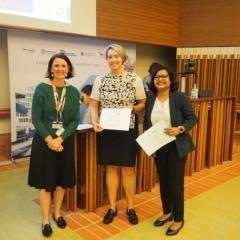 Adding aspirin to some existing cancer drugs could increase their effectiveness against a group of tumours resistant to treatment, new research has shown.
Adding aspirin to some existing cancer drugs could increase their effectiveness against a group of tumours resistant to treatment, new research has shown.
University of Queensland scientists are hoping clinical trials could soon be underway for people with lung, pancreatic and colorectal cancers that have not responded to other therapies.
UQ Diamantina Institute researcher Associate Professor Helmut Schaider said cancers driven by mutations in a group of genes, known as RAS, had a low response to treatments with currently no drug directly targeting them.
The group of tumours includes some pancreatic, lung and colorectal cancers with very low survival rates, as well as a small percentage of melanomas.
“We found the addition of aspirin to a cancer inhibitor drug, Sorafenib, strongly enhanced its effectiveness against mouse models of lung cancer and melanoma with RAS mutations,” Dr Schaider said.
“In a multicentre phase three trial for non-small cell lung cancer, Sorafenib alone showed a marginal improvement for patients.
“Our research suggests its combination with aspirin could benefit patients with RAS mutations who don’t otherwise respond to other treatments.”
Dr Schaider said the drug combination could potentially reduce the dose of Sorafenib required, improving quality of life for patients by reducing adverse impacts that can lead some patients to stop treatment.
“By combining it with a relatively high dose of aspirin, two molecular processes are activated and together they work to kill RAS mutant cancer cells.
“This dual activation also might prevent the tumours acquiring resistance to the treatment, which can happen when the inhibitor drug is given alone.”
Dr Schaider said adverse effects of aspirin also needed to be considered, but the doses required would be most likely clinically manageable for patients who have no remaining treatment options.
“A clinical trial of the combination could proceed relatively quickly, potentially piggy-backing on other testing already underway.”
Dr Schaider, based at the Translational Research Institute, said the dual therapy approach could improve the length of time cancer patients have without their disease progressing.
“We believe adding aspirin could also potentially prevent relapse of tumours in patients.”
The research involved Princess Alexandra Hospital oncologist Dr Victoria Atkinson along with scientists from UQ’s Dermatology Research Centre, Mater Research Institute-UQ, and The Wistar Institute in Philadelphia.
Investigations are already underway into combining aspirin with other cancer-inhibiting drugs.
The research is published in Clinical Cancer Research.
Media: Dr Helmut Schaider, h.schaider@uq.edu.au; Samantha Benger, s.benger@uq.edu.au, 07 3365 5118.



